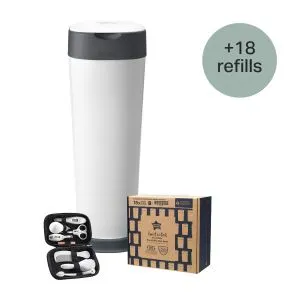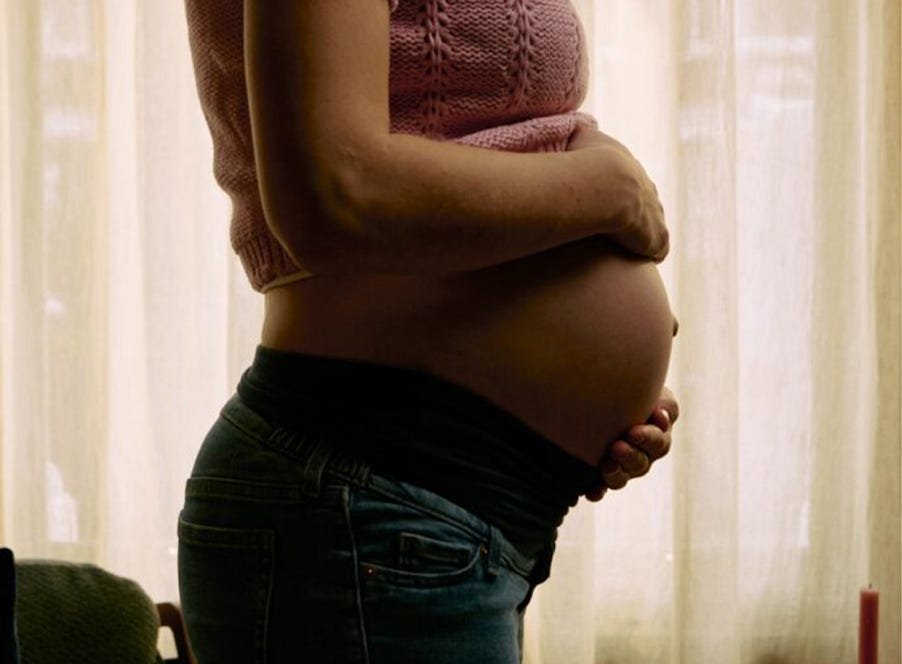
Ultimate XL Nappy Disposal Bundle with 18 Refills
Bundle & Save 40%
Subscription orders can be cancelled at anytime. Free delivery on all subsequent subscription orders. Find out more about subscriptions.
They’re easy and fuss free
Your products are automatically sent to you
You save up to 10% when you sign up for a subscription
You can cancel at any time

As an expectant parent, it's crucial to be mindful of what you eat during your pregnancy. Your diet not only affects your health but also the health of your growing baby.
While there are plenty of nutritious foods to incorporate into your diet, it's equally important to be aware of the foods to avoid during pregnancy.
In this blog, we'll discuss some of the foods that pregnant people should steer clear of and explain why they can be harmful. By being aware of these foods, you can keep yourself and your baby healthy.
While pregnant, the NHS advises that you can eat:
You should avoid eggs that are:
Yes, commercial mayonnaise contains pasteurised eggs which are safe to eat. Homemade mayonnaise can be safe to eat if made using British Lion eggs.
Most hard cheeses like cheddar or parmesan are safe to eat uncooked if they've been made with pasteurised milk.
Mould-ripened soft or blue-veined cheeses like brie, camembert or stilton are only safe to eat if they've been cooked.
Pasteurised feta is safe to eat uncooked, but unpasteurised feta needs to be cooked first, for example in a tart or pasta dish.
Yes, pasteurised mozzarella is safe to eat uncooked, but unpasteurised mozzarella needs to be cooked first, for example on a pizza.
Shellfish, molluscs, and crustaceans come under the "seafood" umbrella. Fish isn't considered seafood. Most types of seafood are safe to eat when fully cooked, but we'll talk through each type one-by-one below for clarity.
Yes, but you should avoid raw shellfish and make sure that any shellfish you do eat is cooked thoroughly to reduce the risk of food poisoning.
Cooked prawns are safe to eat while you're pregnant, but they can cause food poisoning if eaten raw. They should be cooked through until steaming hot.
It's safe to eat cold pre-cooked prawns when you're pregnant.
Cooked lobster is safe to eat, but if it's eaten raw it can cause food poisoning. Any lobster you eat while pregnant should be cooked through until steaming hot.
Cooked mussels are safe to eat, but raw ones should be avoided because they can cause food poisoning. They need to be fully cooked through until steaming hot, and you should always avoid eating closed mussels.
It's also worth noting that mussels and clams are often cooked in a white wine sauce that needs to be thoroughly cooked to allow the alcohol to evaporate. For this reason, some pregnant people choose to avoid sauces cooked with wine or other types of alcohol.
Cooked squid is safe to eat but it can cause food poisoning if eaten raw. Squid should be fully cooked through until steaming hot.
Cooked oysters are safe to eat but raw ones can cause food poisoning. They should be fully cooked through until steaming hot.
Shark, swordfish, or marlin should be avoided during pregnancy, and you should limit your intake of tuna (and other oily fish) to no more than four medium-sized cans, or two fresh tuna steaks a week. This is because they contain unsafe levels of mercury which may be harmful to your baby's nervous system.
If you're pregnant you should avoid eating smoked fish products (such as smoked salmon, mackerel, whitefish and trout) unless it's been thoroughly cooked because of the risk of contracting listeria monocytogenes. If you do eat smoked fish, make sure it's steaming hot all the way through.
Yes, you can eat sushi while pregnant if the fish has been cooked thoroughly.
No, liver sausage and pâtés - even veggie pâté - can contain listeria and are naturally high in vitamin A which can be toxic in high doses.
Smoked or cured meats are safe to eat if they're cooked first.
The presence of lead in shotgun pellets means game meat like pheasant or partridge should be avoided during pregnancy.
Consuming large amounts of caffeine while you're pregnant can affect the growth and development of your unborn baby and can increase the risks of miscarriage.
It's best to limit your caffeine intake and have no more than 200mg per day - that's approximately two cups of instant coffee or four cups of tea. Don't worry - you can always switch to decaf!
You should avoid energy drinks that contain guarana or caffeine.
If you're pregnant or planning a pregnancy, the safest approach is not to drink alcohol at all, to keep risks to your baby to a minimum.
A tasty and healthy alternative to drinking alcohol while you're pregnant is non-alcoholic ginger beer. As well as being super scrumptious, ginger is also perfect for fighting morning sickness and nausea - win, win.
Yes, you can drink milk if it's pasteurised.
Raw milk should be avoided because it can contain harmful bacteria that can cause listeria, among other dangerous diseases. And it's not just cow's milk to be mindful of - raw milk from goats, sheep or any other animal, can carry harmful bacteria that can cause food poisoning.
When milk is pasteurised, it kills harmful bacteria by heating the milk but doesn't decrease its nutritional value.
To be safe, you shouldn't drink more than four cups of herbal tea a day. This is because there's little evidence or data around herbs and their effects on pregnancy and a baby's development. You should opt for a variety of different teas so you're not having too much of any one kind and avoid medicinal or therapeutic doses of herbs all together.
Although artificial sweeteners in moderation are safe for pregnancy, you should try to avoid consuming too many sugary drinks during pregnancy.